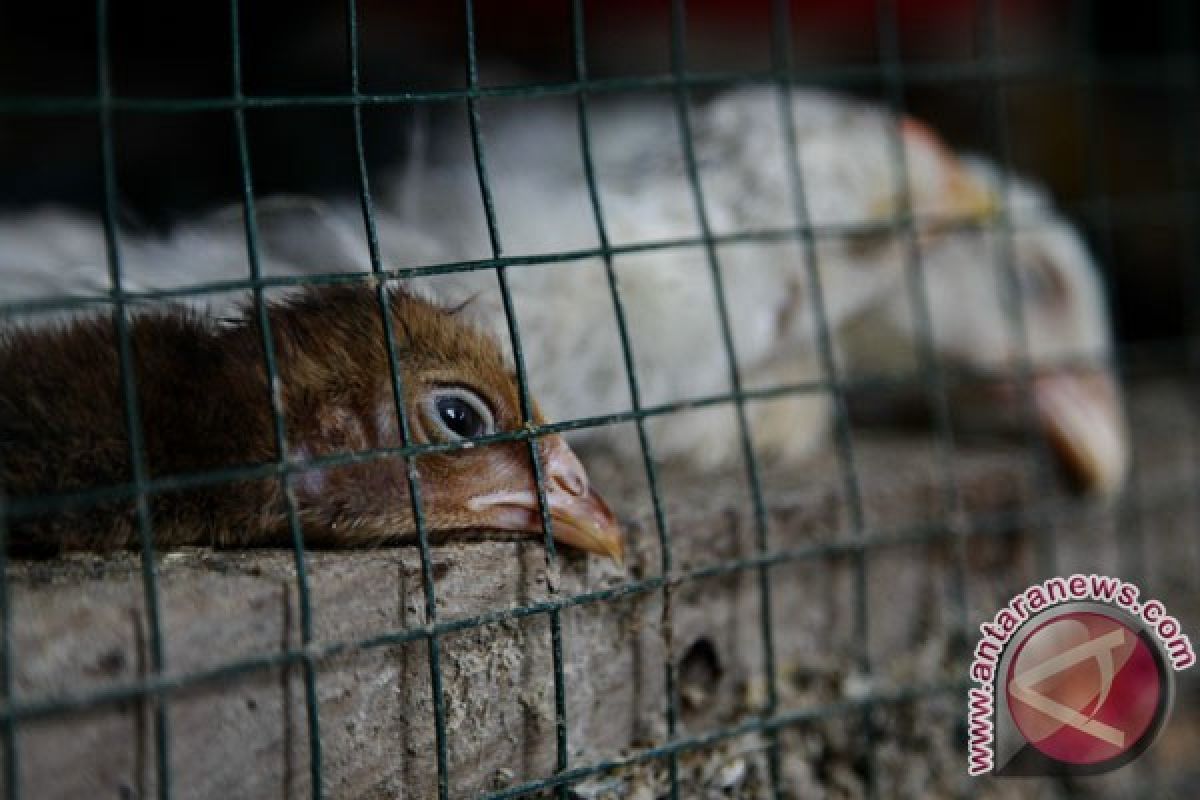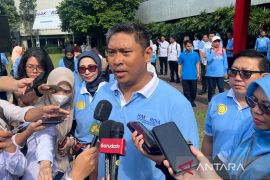According to a statement received here, Saturday, in early 2017, Indonesia detected H9N2 Low Pathogenic Avian Influenza (LPAI) virus that causes a drop in egg production of up to 70% on affected farms.
The Ministry, along with FAO ECTAD promptly responded to control the virus, including training of district veterinary service officers, on-farm technical support and raising poultry farmers` awareness of best farming practices.
On Thursday, the Ministry and FAO ECTAD conducted a national poultry farmers? seminar at the annual Indolivestock Exposition at the Jakarta Convention Center. The seminar aimed to raise awareness on poultry disease prevention through effective farm bio-security, appropriate flock vaccination and good on-farm management practices to reduce the risks from disease agents.
"We faced challenges in tackling the H9N2 virus, which causes egg drop syndrome. In the past, we were dealing only with Highly Pathogenic Avian Influenza Virus (HPAI) H5N1, and we were able to produce good vaccines for that virus. However, for H9N2, we are still facing difficulties to produce a good vaccine. In reality, the virus is badly damaging farmers? incomes, because H9N2 decreases egg production," said Animal Health Director of the Ministry of Agriculture Fadjar Sumping at the opening of the seminar.
He explained, that besides H9N2, MoA also recently received many reports of deaths on broiler chicken farms, "We are still investigating those cases, whether they were caused by a sole infection, or involve multiple infections, combined with other problems like bad poultry feed management, lack of vaccination, low biosecurity, etc," he said.
Antibiotic Growth Promotor Use
In facing those challenges, Sumping encouraged farmers to improve their farm biosecurity and management, as the best way to prevent viral and bacterial infections in poultry.
"We are now focusing our attention on the use of antibiotics as a growth promotor (AGP) in the poultry sector. This is forbidden in Indonesia, and we have tried to convince farmers that using AGP only provides temporary benefit, and can be very harmful in the long term, "he said.
Agreeing with Sumping, the FAO ECTAD Indonesia Team Leader James McGrane affirmed the misuse and over-use of antibiotics in humans and poultry that have placed humans at great risk due to antimicrobial resistance (AMR).
The Food and Agriculture Organization (FAO) of the United Nations estimates that about 60,000 tons of antimicrobials are used globally in livestock each year. With the growing demand for animal products, global use is projected to rise by 67 percent by 2030 to 106,000 tons.
"If we don?t do anything, it is estimated that human deaths associated with infections caused by bacteria resistant to antibiotics could reach 10 million by 2050, with half of those fatalities occurring in Asia," he said in his opening remarks.
Through the Emerging Pandemic Threats (EPT-2) programme, funded by USAID, FAO ECTAD together with the MoA are focused on increasing the Government of Indonesia?s capacities to prevent and control global health threats, including AMR.
"I am very glad that today, together with the Ministry of Agriculture and Indonesian poultry farmers, we can sit together to discuss these problems. Let us work together to find the best solutions," McGrane added.
Reporter: Aria Cindyara
Editor: Otniel Tamindael
Copyright © ANTARA 2018












